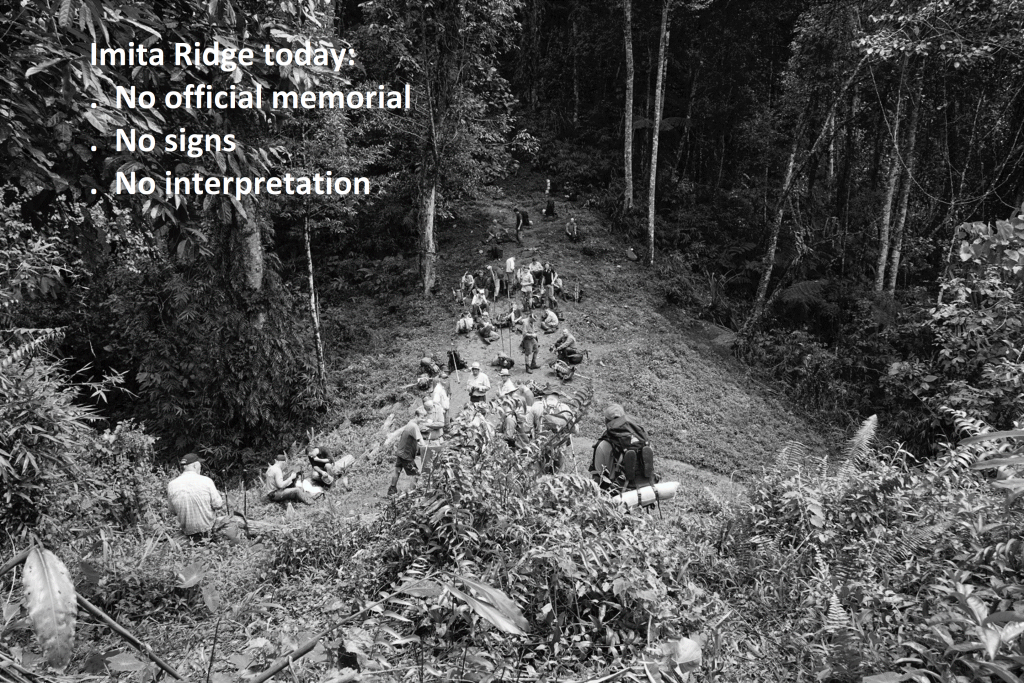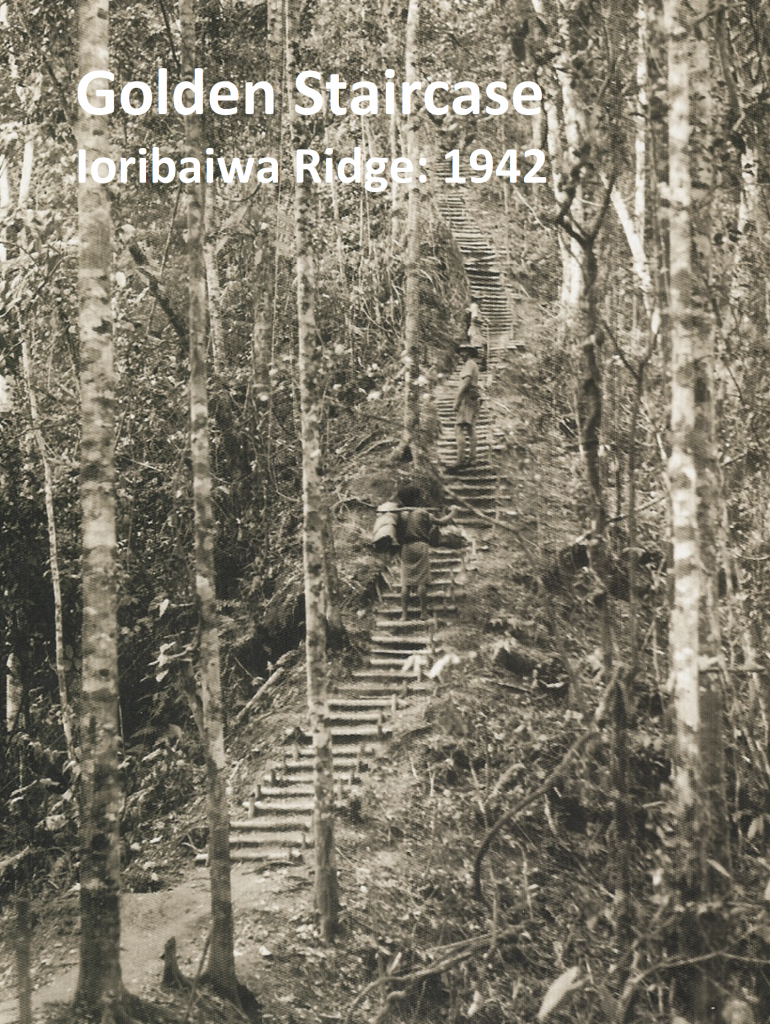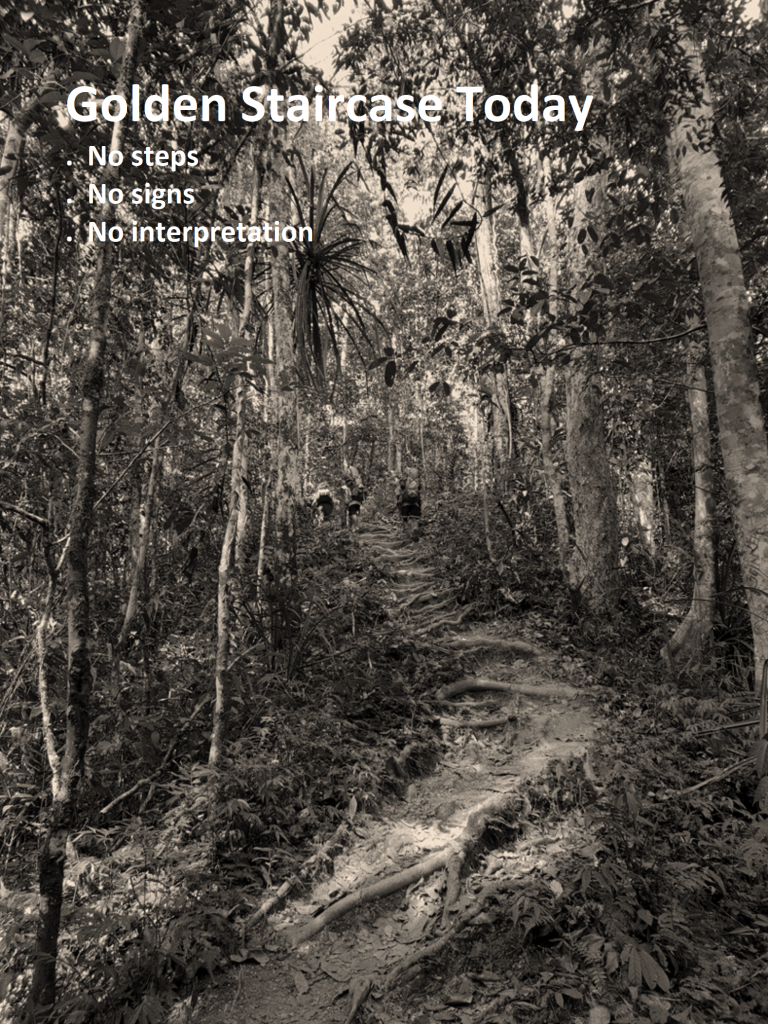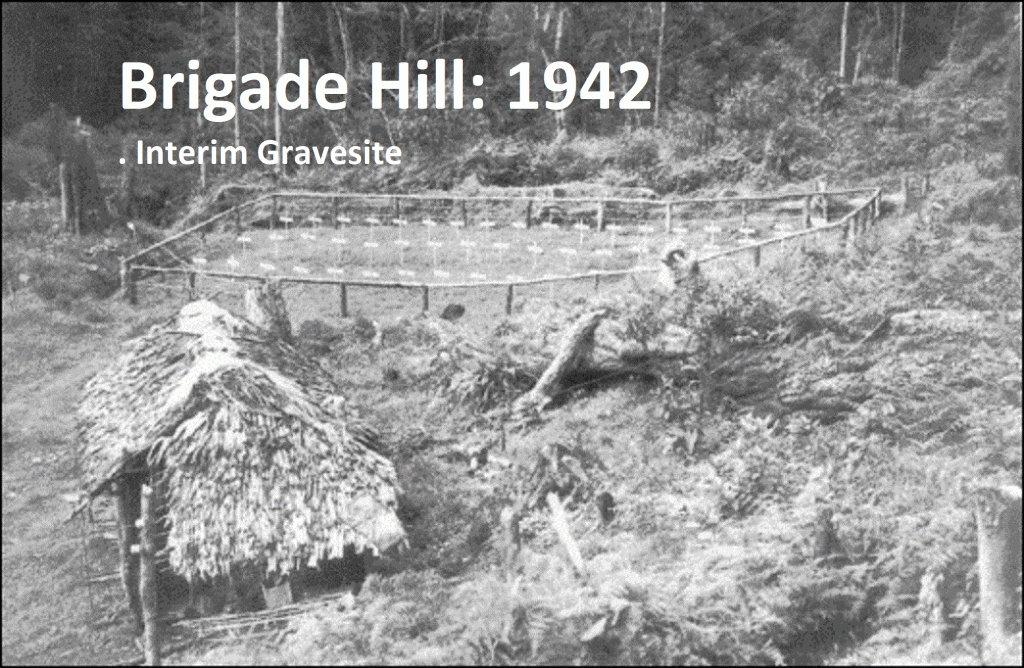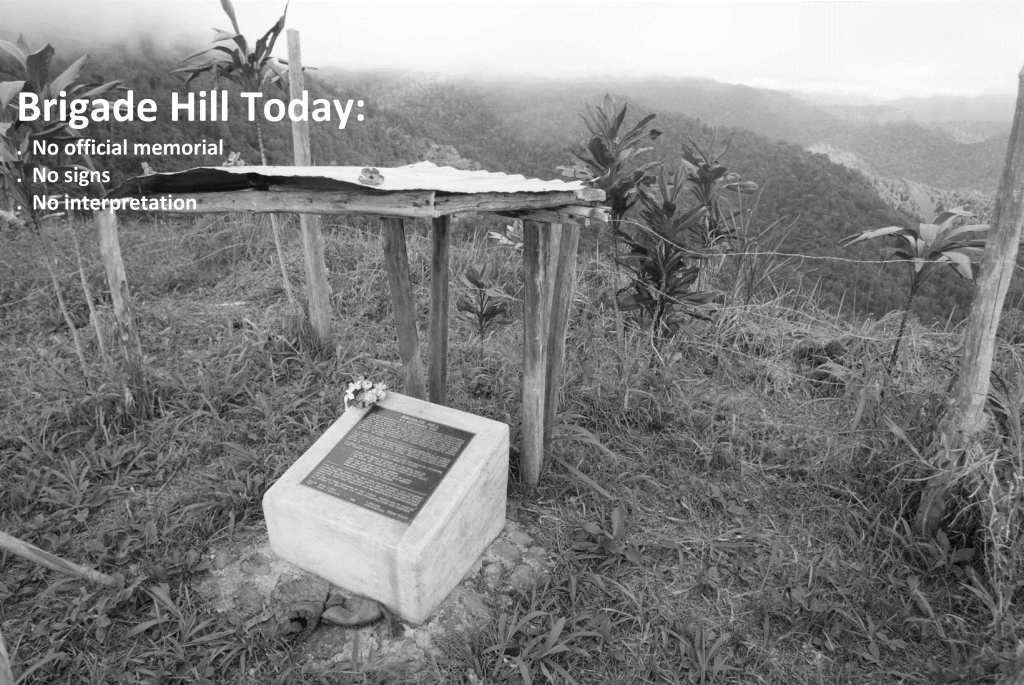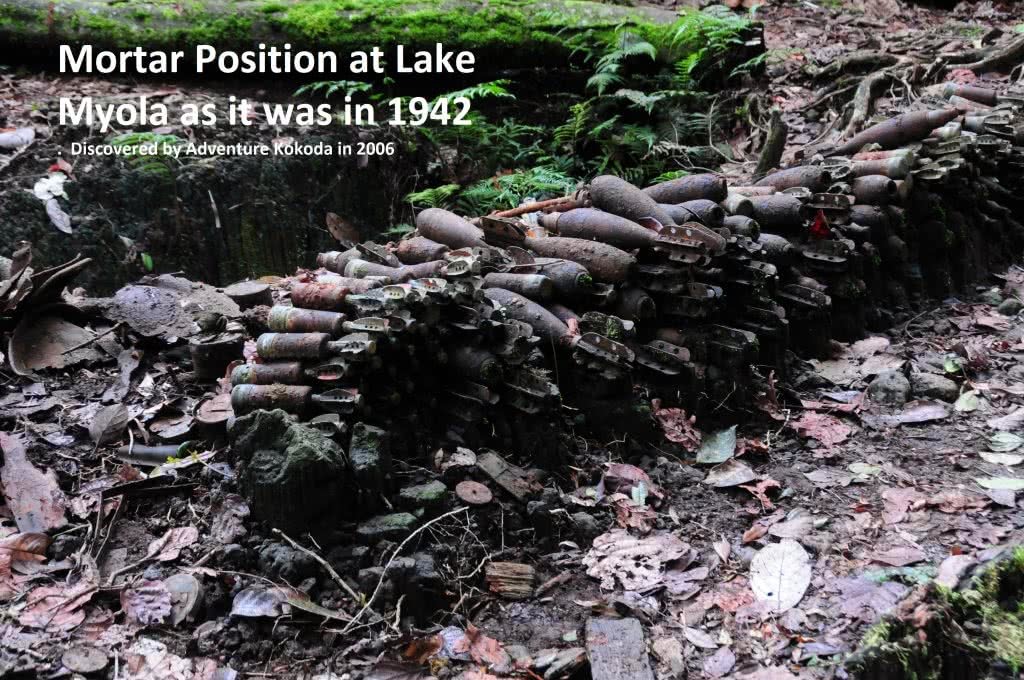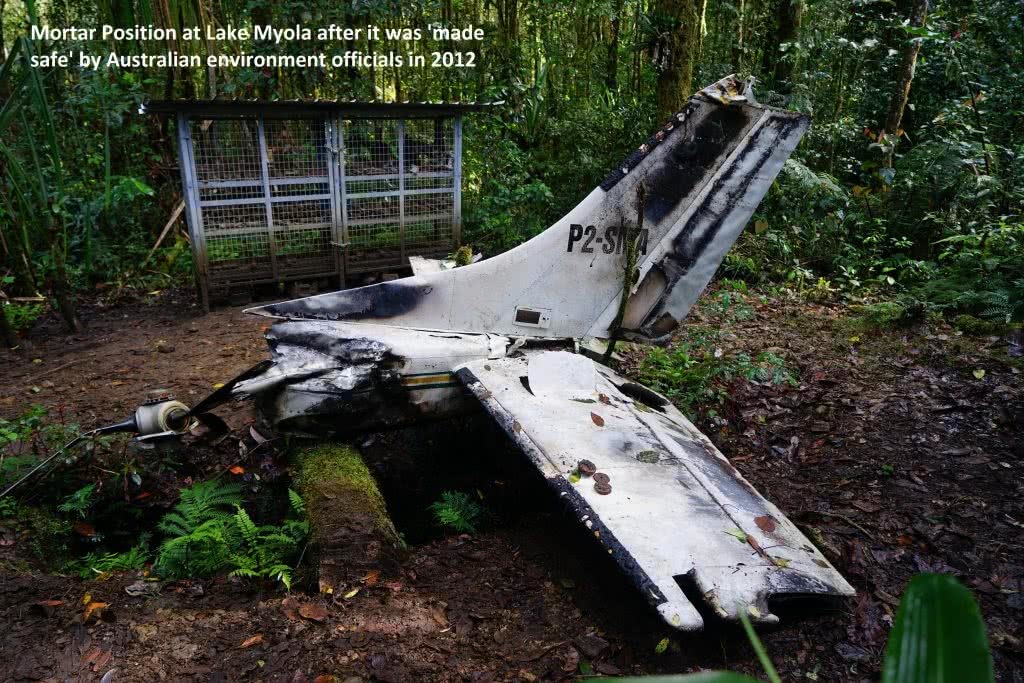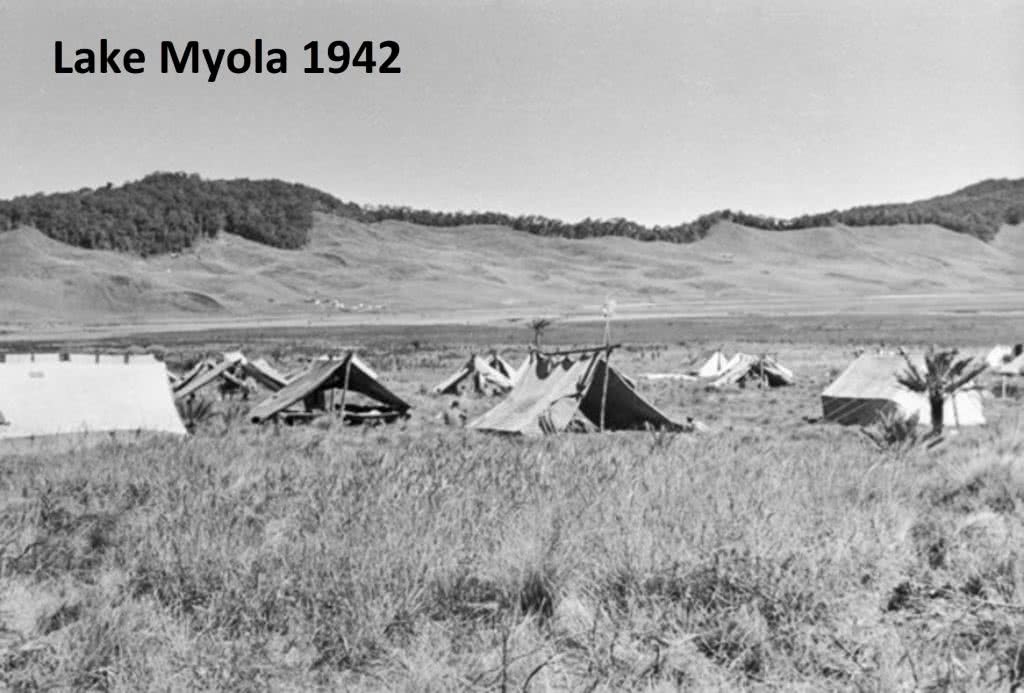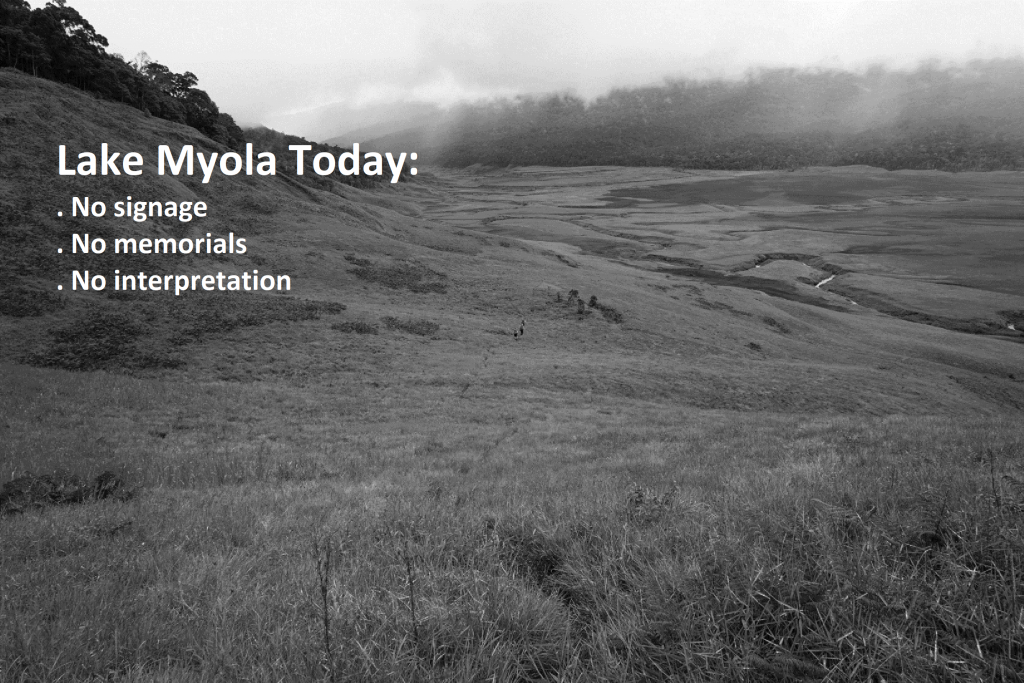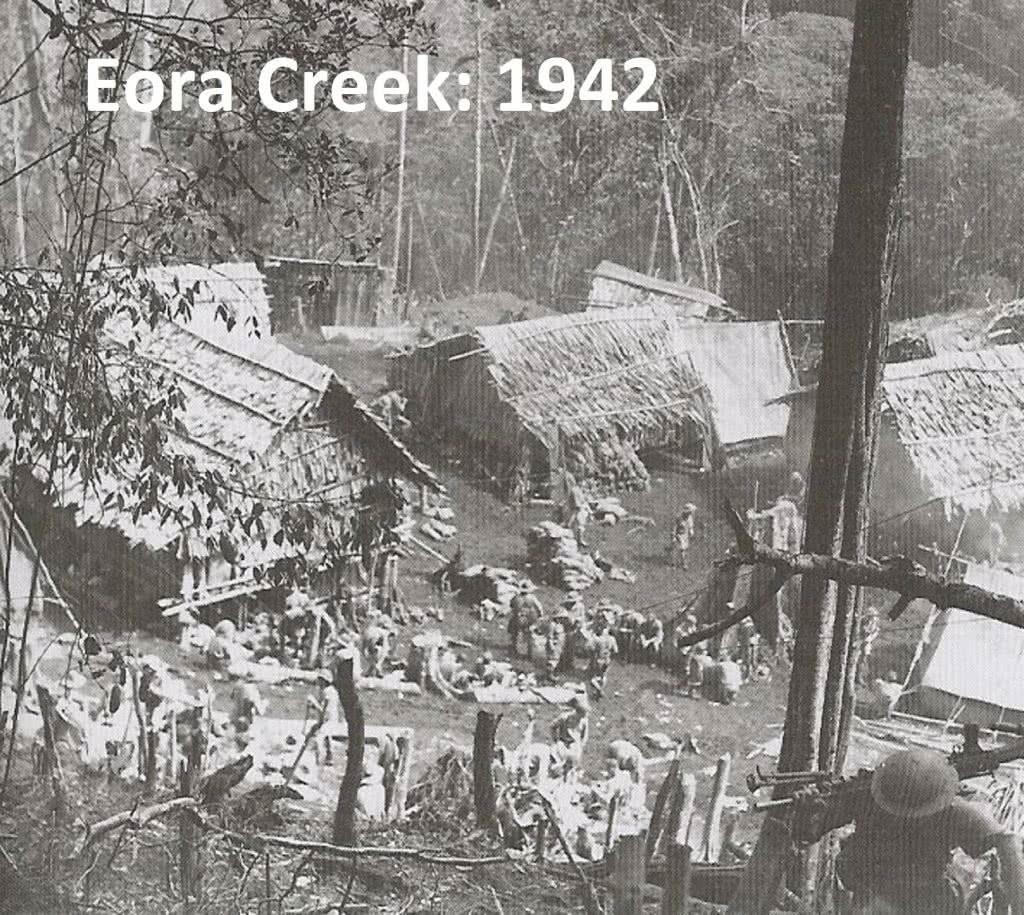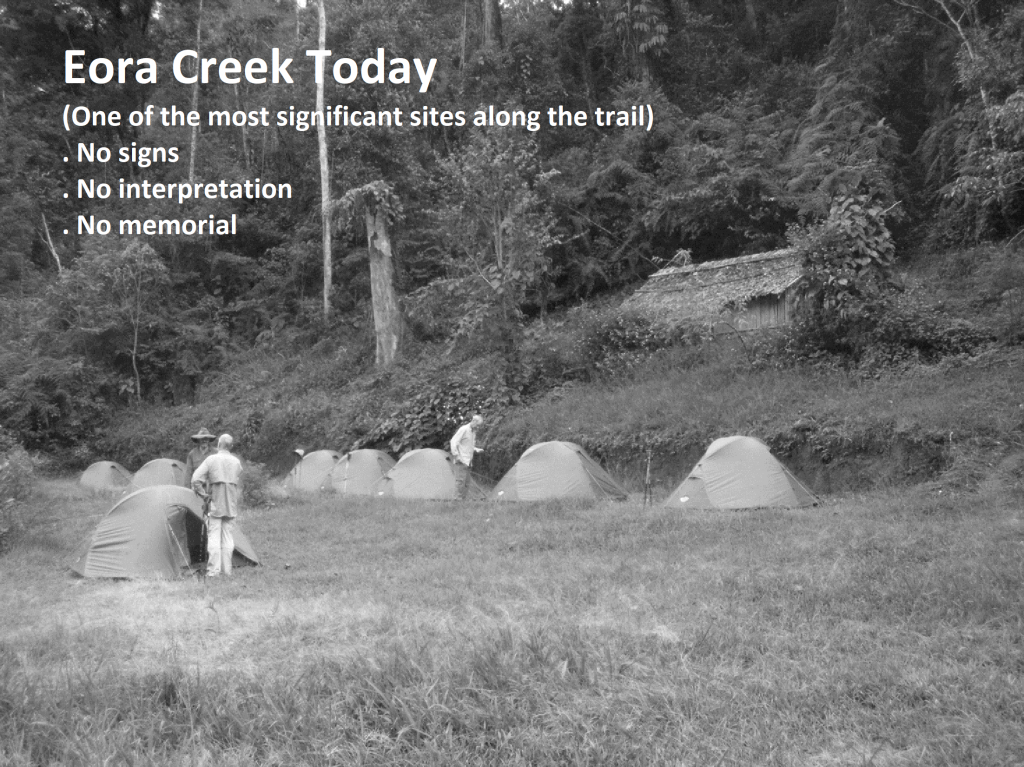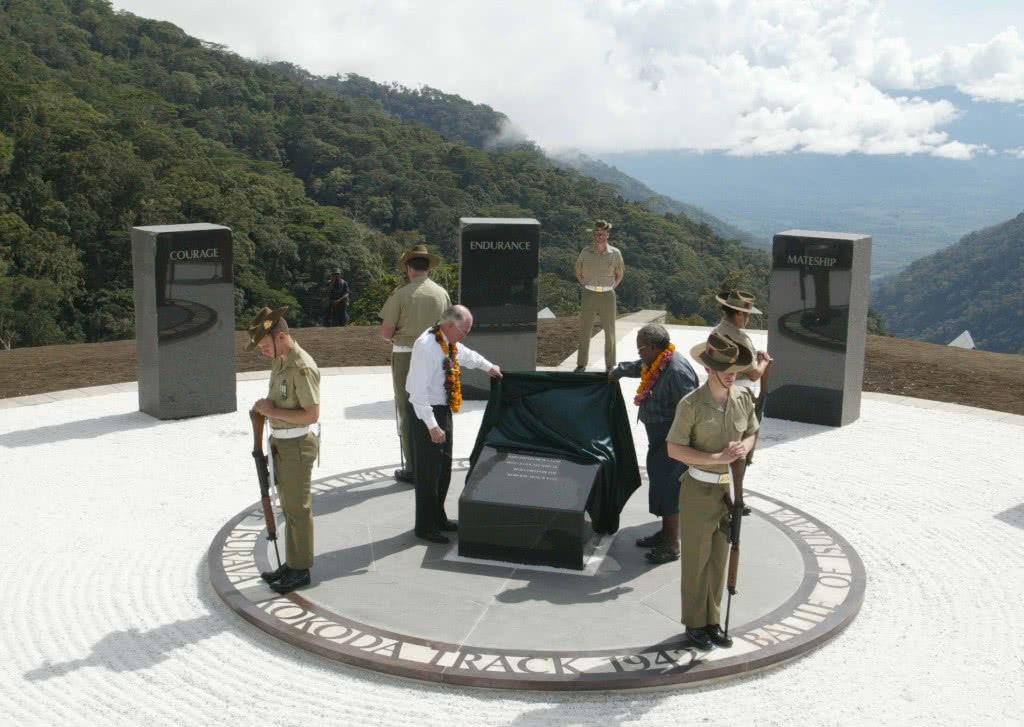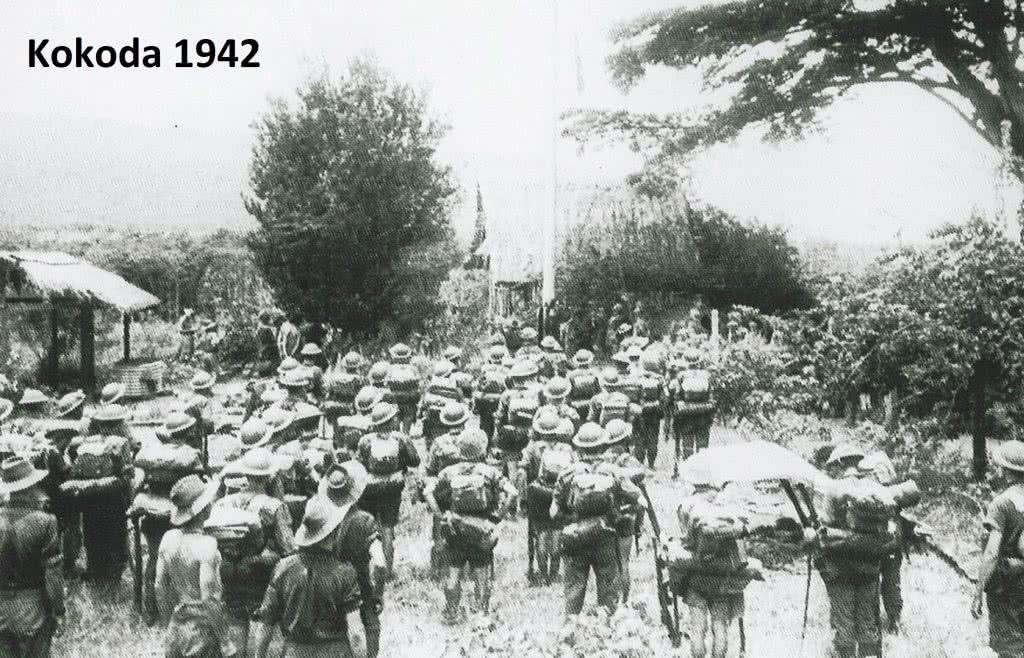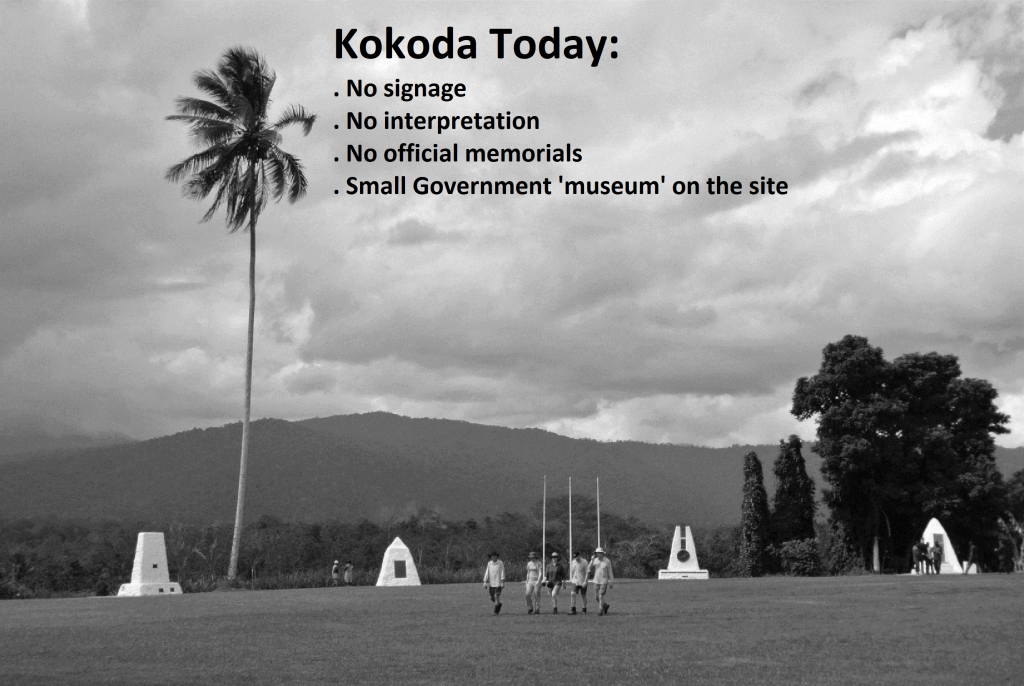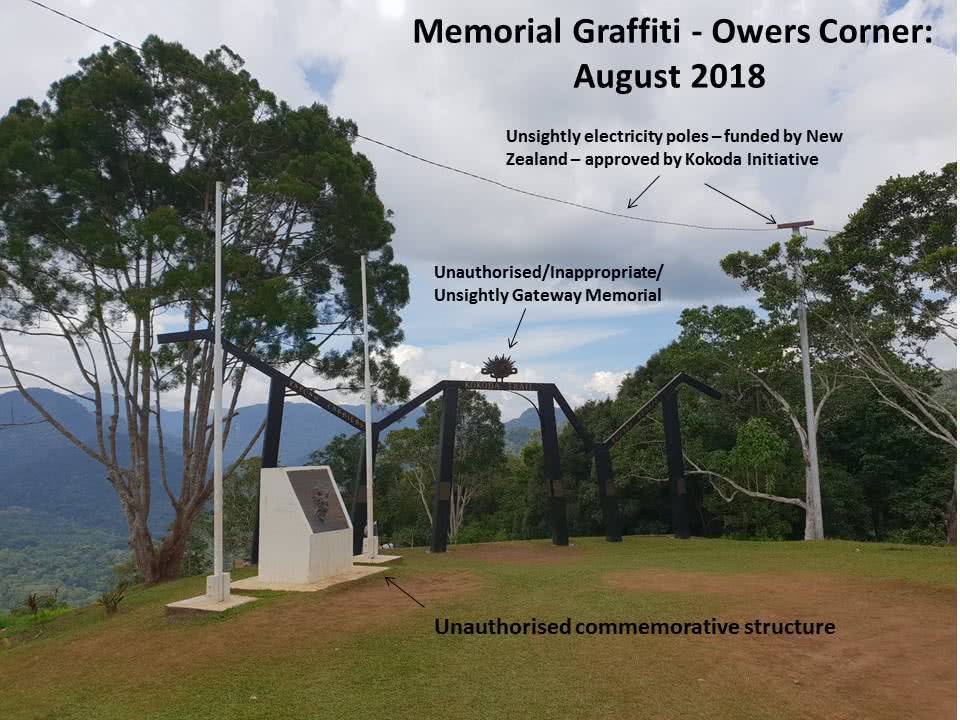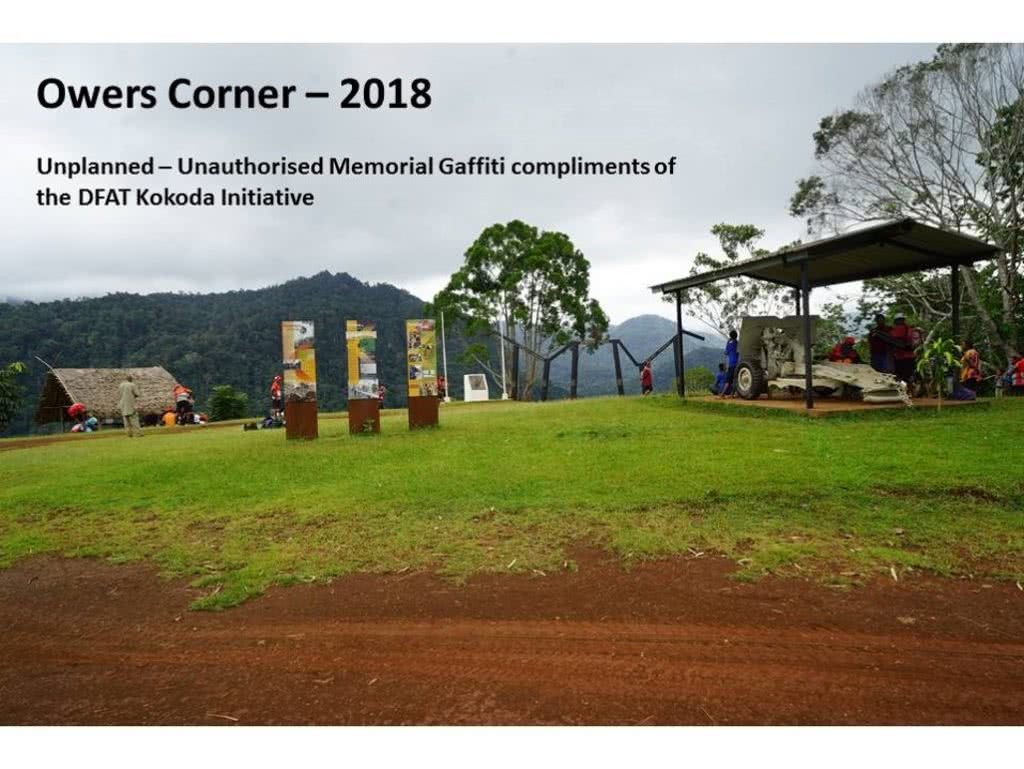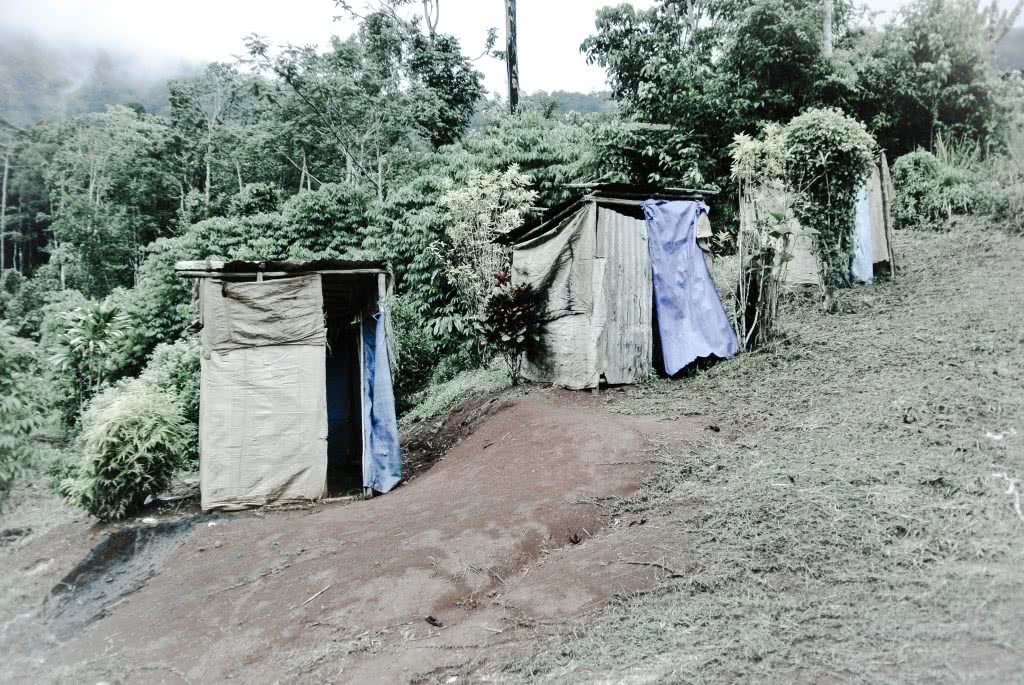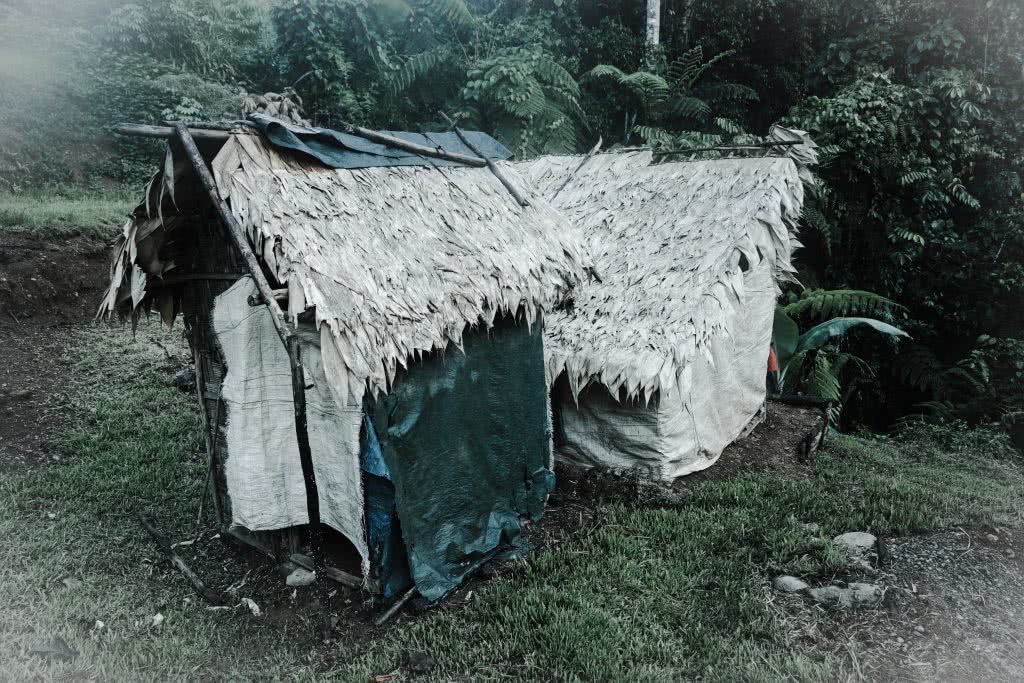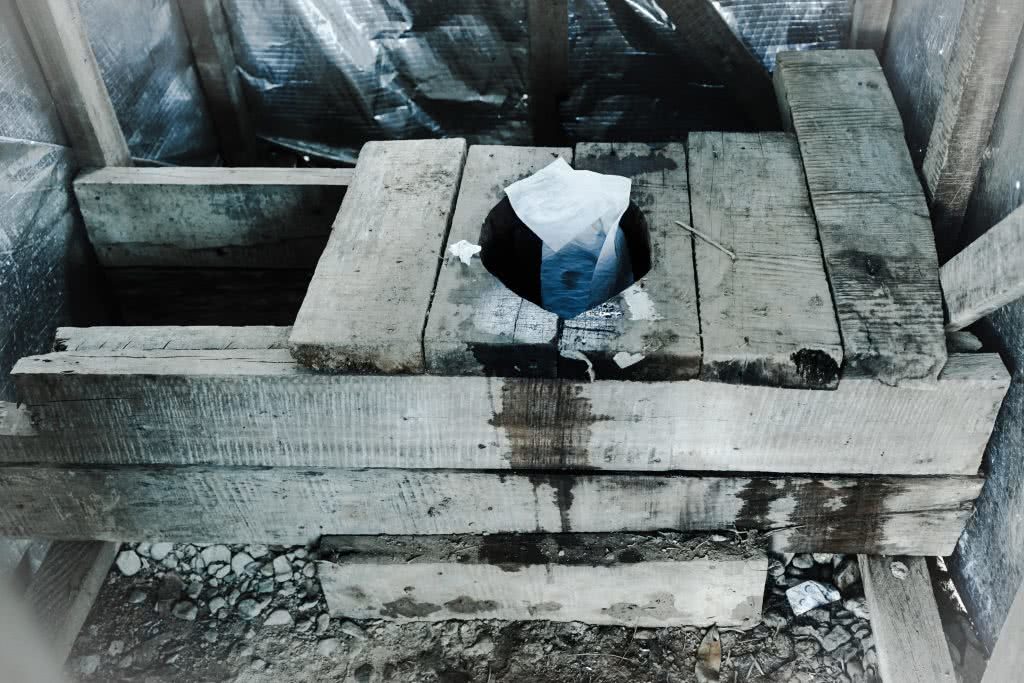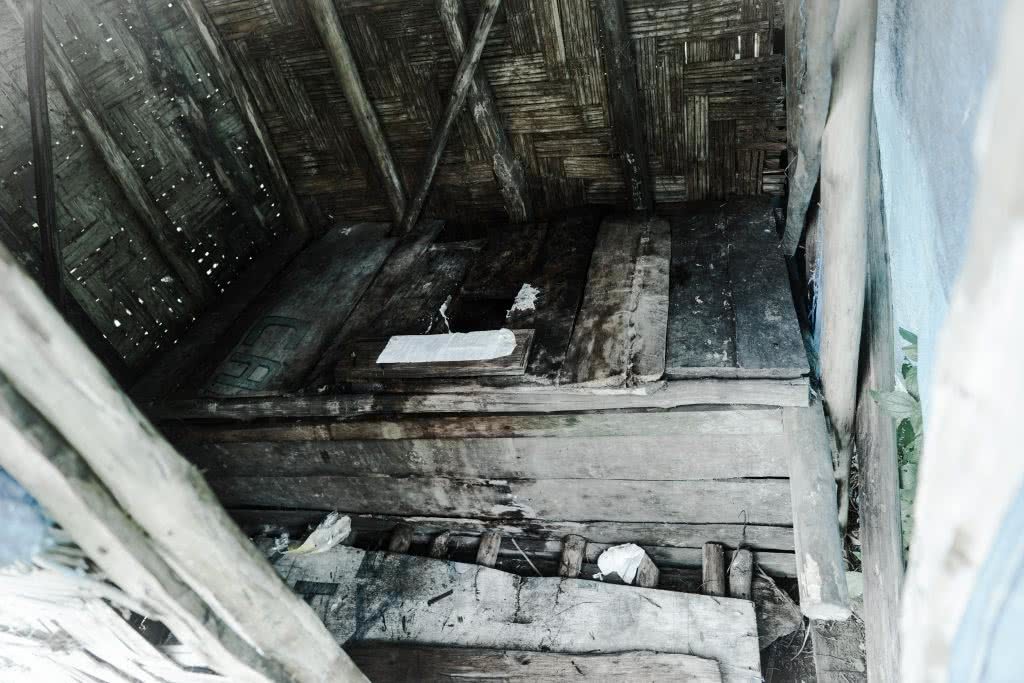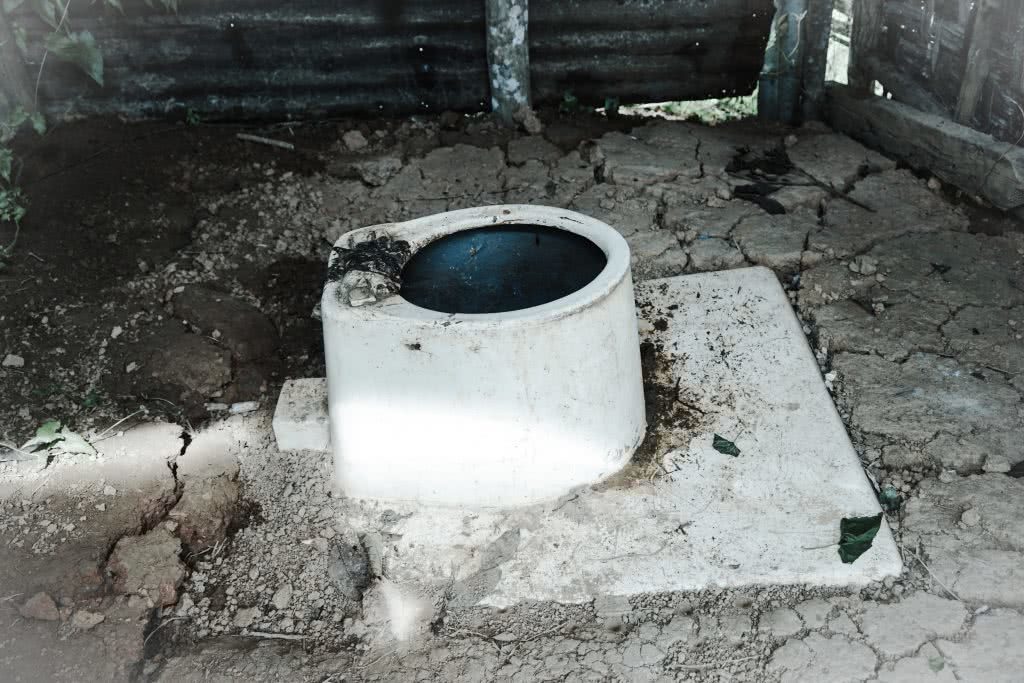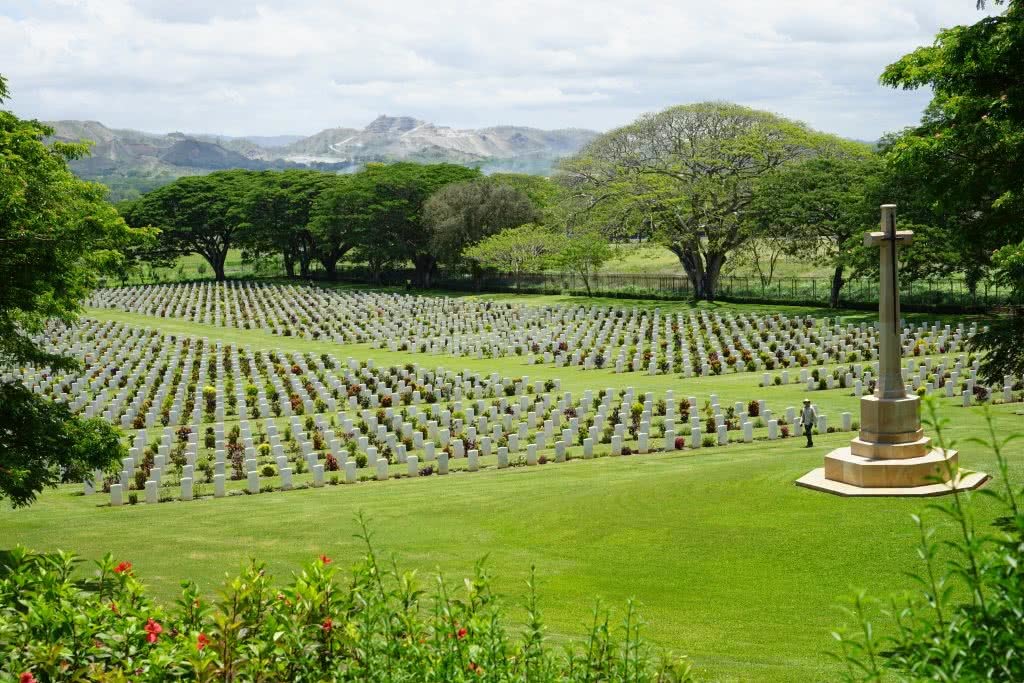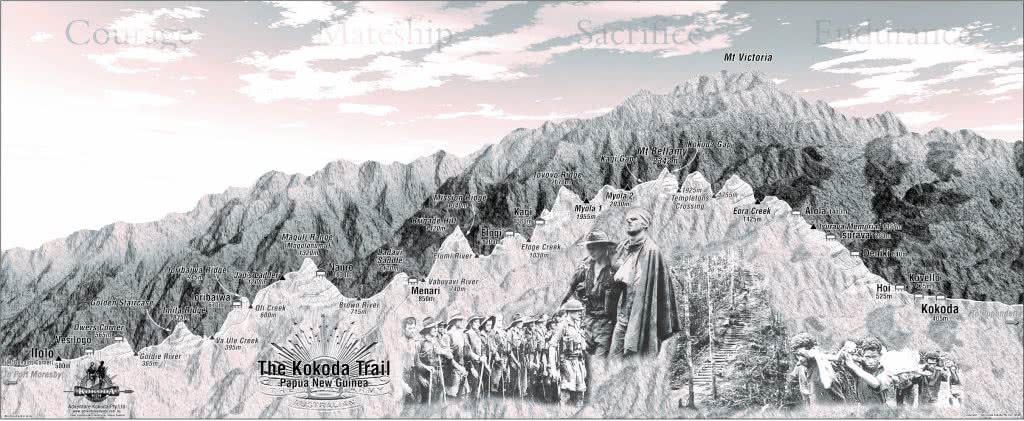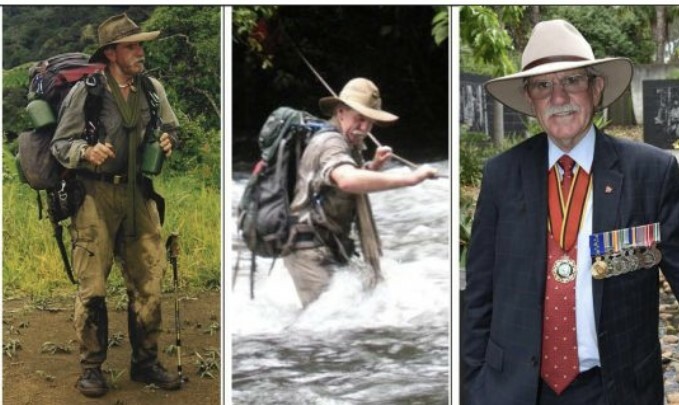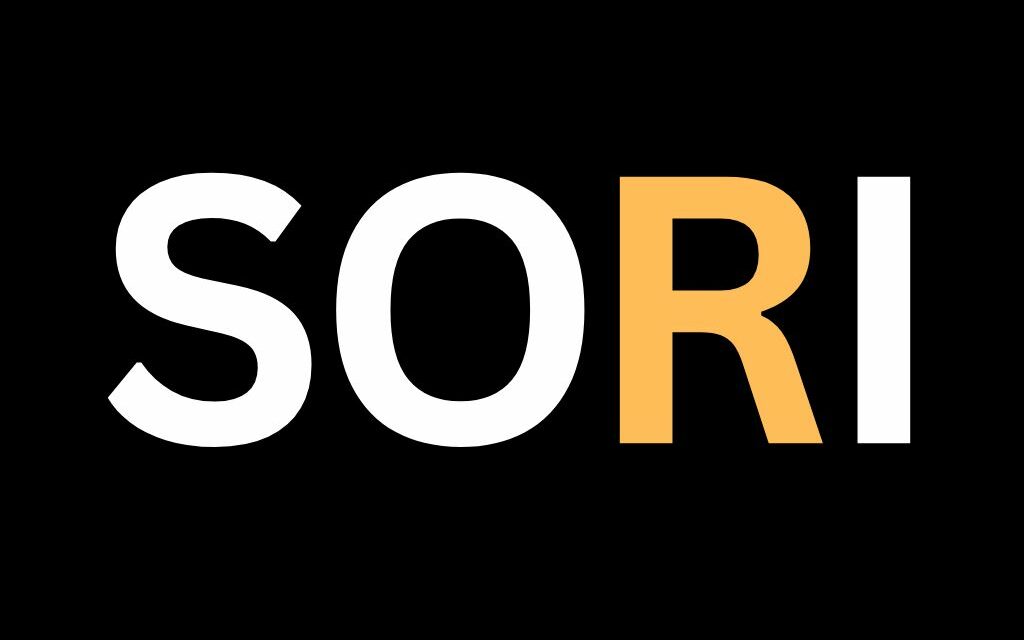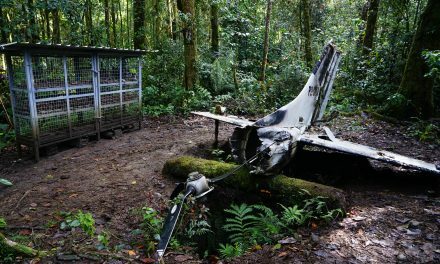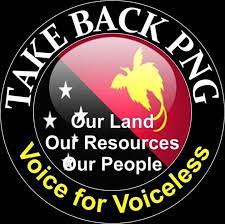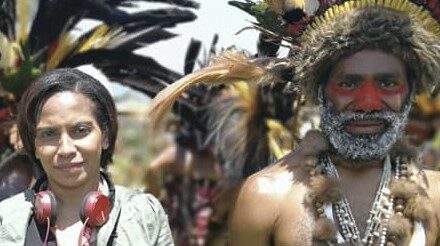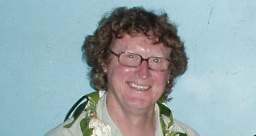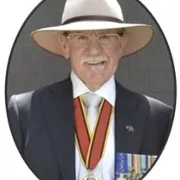
‘After my 32-year involvement with the Kokoda Trail, which included 101 treks across it, my greatest regret is my failure to ensure our shared military heritage would be protected, honoured, and interpreted for future generations.
‘I remain convinced that the Kokoda Trail has the potential to be a high-value, world-class pilgrimage tourism destination capable of providing a sustainable economic future for the traditional landowner communities who live across it.
‘I never dreamed such a simple vision would be undermined by Canberra officials who would leverage taxpayer funds to capitalise on the emerging popularity of ‘Kokoda’ to support an ideological agenda for the environment and social engineering at the expense of a sustainable tourism industry for villagers based on our shared wartime heritage across the Trail.
Charlie Lynn
Following are extracts of my communications with Ministers, MPs, public servants, the RSL and veterans over the years . . .
4 November 1992
‘While the proposals you have outlined in your letter of 25 August (1992) to the Prime Minister have undoubted merit, I can give no undertaking that anything of that nature would fall within the scope of the commemorative measures now under consideration’.
The Hon Ben Humphreys MP, Minister for Veterans Affairs
22 February 1995
‘The Government’s philosophy is to commemorate and celebrate the 50th anniversary of the end of World War 11 with activities here in Australia. The only specific events relating to ‘Australia Remembers’ planned for overseas are three small pilgrimages of Australian veterans.’
The Hon Con Sciacca MP, Minister for Veterans Affairs
24 June 1997
“As a result it is not possible to award the Civilian Service Medal to the ‘Fuzzy Wuzzy Angels’ at this distance in time.’
The Hon David Jull MP, Minister for Administrative Services
10 November 1997
‘Your suggestion to form a small working group has merit. However, I do not recommend proceeding in this way at this time.’
The Hon Bruce Scott MP, Minister for Veterans Affairs
11 December 2000
‘Your proposal to develop the Trail is unfortunately outside the scope of the Australian aid program.”
Senator Kay Patterson, Parliamentary Secretary to the Minister for Foreign Affairs
7 December 2000
‘With these limitations in mind, I regret I am unable to offer any prospect of achieving the all-of-government approach you seek in the time frame you propose.’
The Hon Bruce Scott MP, Minister for Veterans Affairs
13 January 2001
‘I believe you have presented to the Government an excellent proposal and initial plan to establish the Kokoda Track (or Trail) as a National Memorial Park – long overdue!’
Stan Bisset AM MC, President, 2/14th Battalion Association
7 February 2001
‘Because of the above reasons and in consultation with the Chiefs of the villages along the Trail, I demanded a compensation of A$2,000,000.00 for developments along the Trail. This was not for Oro Province as a whole. However, after receiving your letter, I held discussions with the Chiefs and Councillors from the area and explained the contents of your letter in which I must say, all leaders from the area are happy with your efforts in going as far as preparing a proposal which is now before the Australian Government to develop a Master Plan for the development of the Kokoda Trail as a National Memorial Park.’
The Hon Sylvanus Siembo MP, Governor, Oro Province
18 February 2001
‘It will come as no surprise to you then that the ‘Government Master Plan’ of which you inquire ‘for the development of the Kokoda Track as a national memorial park’ does not exist . . . I regret that I am unable to satisfy your demand for such a large scale approach to this issue.
The Hon Bruce Scott MP, Minister for Veterans Affairs
8 March 2001
‘The Australian High Commission in Port Moresby welcomes Mr Lynn’s enthusiasm and commitment to develop the Kokoda Track. We acknowledge the contributions he has made in the past and note that he is highly regarded in a number of communities for his assistance. Like many Australians, he has a strong belief in the Track’s historical importance and can see its potential as a source of revenue for local people and of education and personal development for young Australians in particular. My staff and I have met with Mr Lynn on a number of occasions during his visits to Port Moresby, and we accept that he is pursuing his proposals in order to advance what he believes is in the best interests of the Kokoda Track and its people.’
H.E. Nick Warner, Australian High Commissioner to Papua New Guinea
19 March 2001
‘Your interest and commitment to the development of the Kokoda Track reflects your strong desire to improve the living conditions of its communities. In this regard our High Commissioner to Papua New Guinea greatly values your interest and suggestions, especially with respect to small-scale projects that might fit into their preferred strategy currently being developed. I trust this letter will be useful in finally resolving the issue of why my Department will not promote the creation of a National Memorial Park.’
The Hon Bruce Scott MP, Minister for Veterans Affairs
At this stage of the process all correspondence to Ministers was forwarded to the Minister for Veterans Affairs for a response. It was clear it was regarded as a Veterans Affairs issue – nobody has yet been able to grasp the important contribution other government (Australian and PNG) departments such as education, arts, environment, defence and foreign affairs can make towards the development of the Kokoda Trail. It was also obvious that none of the current ‘advisers’ had any first hand experience of Kokoda. I therefore proposed an interdepartmental project team be formed (with Australian and PNG representation) to trek across Kokoda with a view to educating them on the reality of the Track and the issues surrounding it.
9 May 2001
‘I have noted your advice that the Papua New Guinea (PNG) Minister for National Planning is enthusiastic about your proposal. However, I believe the master plan you seek is a document most appropriately compiled by the Government of PNG. The Australian Department of Foreign Affairs may be interested in contributing to such a process that would provide aid and development initiatives to provinces along the Kokoda Track. But it is a matter for the Government of PNG to decide if a master plan is appropriate and what organisations might be represented on any committee brought together for the preparation of such a document. Consequently, I trust that you will understand why I will not be selecting staff from my Department to participate on your project team.’
The Hon Bruce Scott MP, Minister for Veterans Affairs
17 May 2001
‘In view of the current situation on the Kokoda Track it would be inadvisable for the Australian Government to promote a proposal for the Track’s development. The subject of Mr Lynn’s proposal is a matter, in the first instance, for the Government of PNG. It would be inappropriate for a group of Australian bureaucrats to walk the Track and develop a master plan in isolation to the situation on the ground..’
The Hon Bruce Scott MP, Minister for Veterans Affai
(In response to The Hon Dr Brendan Nelson MP, Parliamentary Secretary to the Minister for Defence)
17 May 2001
‘Thank you for your e-mail of 24 April 2001 to a number of Members of Parliament, Senators and others, regarding your proposal to create a Kokoda National Memorial Park in Papua New Guinea. I have previously explained why I do not support your proposal at the present time and trust that you will refer to my earlier letters on this matter. Mr Nick Warner, Australian High Commissioner to PNG, has provided advice that your proposal is premature and inappropriate at this stage.’
The Hon Bruce Scott MP, Minister for Veterans Affairs
30 May 2001
‘This headband that I have put around your head is a symbol of a chief and is sacred. It is only worn by chiefs in the Oro Province. This headband you wear marks you as one of the chiefs of the Orokaiva people because of your hard work to my people in our endeavours to reaching a lasting solution to the famous Kokoda Trail closure. This headband and necklace that I presented to you today marks our brotherly relationship and a lasting memory to live on in future generations to come.’
The Hon Sylvanus Siembo MP, Governor of Oro Province
Presentation toCharlie Lynn at Kovello village
16 July 2001
‘Having discussed this matter with representatives of the Papua New Guinea Government I have found no support for a park along the lines you have suggested. Other options were discussed but, in view of the social problems in the area associated with the Track, these alternatives have not been developed.’
Senator Robert Hill, Minister for the Environment and Heritage
10 August 2001
‘As far as I am aware, the social problems associated with the track are continuing. Until such a time as these can be resolved by the people and Government of Papua New Guinea, and there is official PNG Government support for a memorial park, I am unable to consider expending resources and staff to work on a project team as you suggest.’
Senator Robert Hill, Minister for the Environment and Heritage
18 September 2001
‘In previous correspondence, I have stated clearly that no such trek will be taking place while the security situation in the area remains uncertain and current High Commission travel advisories are in place. Further, officials and advisers on this issue have no need to embark on such a walk at public expense to capture the obvious importance of appropriate memorials being established along the Track. All members of the committee have a comprehensive understanding of the significance of the Track and what it means to the Australian community . . . the intend of the inter-departmental committee is to consider all proposals for the Track and to develop a co-ordinated response for consideration by this Government. Therefore and trek along the lines that you have proposed would be inappropriate, unnecessary and could be deemed as prejudicial to the deliberations of the committee.’
The Hon Bruce Scott MP, Minister for Veterans Affairs
28 September 2001
‘I appreciate that there would be a great deal of planning required for such a trek but wish to reiterate that no such trek will be taking place while the security situation in the area remains uncertain and current High Commission travel advisories are in place. Further, members of the committee are already aware of the significance of the Track and the importance to the Australian community.’
The Hon Bruce Scott MP, Minister for Veterans Affairs
17 October 2001
‘With regards to the trek, I wish to reiterate that the IDC is aware of the significance of the Kokoda Track and that as I advised previously, no such trek will be taking place while the security situation in the area remains uncertain and current High Commission travel advisories are in place.’
The Hon Bruce Scott MP, Minister for Veterans Affairs
Author’s Note: It is fortunate that ‘travel advisories’ were not in place in 1942 otherwise our troops would never have been allowed to leave Australia with all that hostile Japanese activity in PNG at that time!
26 October 2001
‘The IDC currently has no plans to take part in a trek across the Track. All members of the committee have a comprehensive understanding of the significance of the Track and what it means to the Australian community.’
Dr Peter Poggioli, Chief of Staff to the Minister for Education, Training and Youth Affairs
29 October 2001
‘Thank you for the recent information you sent regarding your proposals for the ‘big picture’ plans for the track and I wish you well. I agree that the Minister for Veterans Affairs is a hard person to deal with having spoken with a lot of the veterans and also seen the problems we have had. Good luck with getting politicians to cross the track . . . The problem I see is that without a co-ordinated approach, everyone goes off doing their little bits and it all gets confusing. A lot of people aren’t aware of the problems that occur in PNG in trying to achieve outcomes, etc. After 3 years living there, the real problems of corrupt and unintelligent government members, cronyism, wantokism, compensation and cargo cult become very apparent. Anyway Charlie, I wish you luck and if there is anything I can do to assist, please let me know.’
Ian Hopley, Australian Police Advisor in PNG
Executive Committee Member and Trustee, 2/14th Battalion Association
27 November 2001
‘I am pleased to advise that the National Executive of the RSL has endorsed the proposal to establish a master plan for the development of the Kokoda Track Memorial Park. Thank you for taking the time to address our National Executive and for the personal effort you have put into promoting this concept.’
Major-General Peter Phillips AO MC (Retd), National President, Returned Services League
25 January 2002
‘Thank you for your letter of 6 December 2001 congratulating me on my recent appointment as Minister for Veterans Affairs. . . In response to you invitation to discuss your proposal for the development of the Kokoda Track as a National Memorial Park, I wish to endorse the comments of my predecessor. The inter-departmental committee (IDC) on Kokoda is currently considering all proposals for the Track and developing a co-ordinated response for consideration by this government. ’
The Hon Danna Vale MP, Minister for Veterans Affairs
30 July 2002
‘I do however wish to draw your intention to the fact that the inter-departmental committee report was established to examine Australia’s interests in Kokoda Track Development and to determine ways to enhance public recognition of its importance to Australians. Whilst the IDC included provision in the longer term for outlining a process for cooperative development, its purpose was not to develop a master plan for the future development of the Kokoda Track. . .’
The Hon Danna Vale MP, Minister for Veterans Affairs
In 2002, the 60th anniversary of the Kokoda campaign the Australian Government finally commissioned a memorial at Isurava. This was at the site I was able to identify in 1996 using 1942 maps and a global positioning system. A dedicated team of volunteers led by an Australian policeman on exchange in PNG, Inspector John Rennie, later scoured the site and mapped out the positions. Patrick Lindsay, author of ‘The Spirit of Kokoda – Then and Now’ spent a week onsite researching material for his book.
On 26 August 2002 the Prime Minister of Australia, The Hon John Howard and the Prime Minister of Papua New Guinea, The Hon Sir Michael Somare jointly opened a superb memorial on the battlesite. It is a simple, powerful structure comprising four granite pillars – each containing a single word – ‘Courage, Mateship, Sacrifice, Endurance’.
It was a proud day for the veterans who attended the ceremony.
The late Phil Rhoden, commander of the 2/14th Battalion at Isurava wrote:
“The veterans and I, in particular, are aware of your work over many years in you bringing the events in 1942 to the attention of all who would listen to you and some who would not and were it not for that persistence and endeavour of yours the words ‘courage, endurance, mateship and sacrifice’ would not be at Isurava for all to see.”
On 15 November 2002 PNG High Commissioner, H.E. Renagi Lohia requested that I arrange a meeting between the Prime Minister of PNG, Sir Michael Somare and the Premier of NSW, The Hon Bob Carr to discuss a relationship between PNG and the state of NSW. During these discussions Premier Carr gave an undertaking to include the study of the Kokoda campaign into a planned revision of the NSW educational curriculum.
On 7 July 2003 the Minister for Education, The Hon Dr Andrew Refshauge, announced:
‘Another new part of the history syllabus is the study of the Australian men and women who served their country in World War II, and the impact of the war on the home front. This includes their struggle to defend Australia from Japanese attack, the legendary soldiers who fought on the Kokoda track, our prisoners of war and the role of Australian nurses’.
Premier Bob Carr wrote:
“I’ve always been impressed by your love of the Track and your determination to ensure its place in the Australian imagination is never lost.
“I’ve always been impressed by your love of the Track and your determination to ensure its place in the Australian imagination is never lost.
“You know better than most that the Kokoda Track isn’t just a place where our salvation was won – though we should remember and document and treasure every inch of it. Kokoda’s now part of the Australian Dreaming, a sacred site.
“More than that the Men of Kokoda are among the greatest of heroes in a land that rightly canonizes few heroes. And as time slowly steals the survivors from our midst, it’s hard to resist thinking that Australians in the not too distant future will look back with almost disbelief at the giants who lived in those days.
“You know better than most that the Kokoda Track isn’t just a place where our salvation was won – though we should remember and document and treasure every inch of it. Kokoda’s now part of the Australian Dreaming, a sacred site.
“More than that the Men of Kokoda are among the greatest of heroes in a land that rightly canonizes few heroes. And as time slowly steals the survivors from our midst, it’s hard to resist thinking that Australians in the not too distant future will look back with almost disbelief at the giants who lived in those days.”
On 30 September 2003, the President of the 2/14th Battalion Association, Stan Bissett AM MC invited me to become an associate member of their battalion association. He wrote:
‘You have already been a tower of strength in achieving recognition for the performance of all Aussies and ‘fuzzy-wuzzies’ in the Kokoda Track Campaign. We would be honoured to have you as a member of our association.’
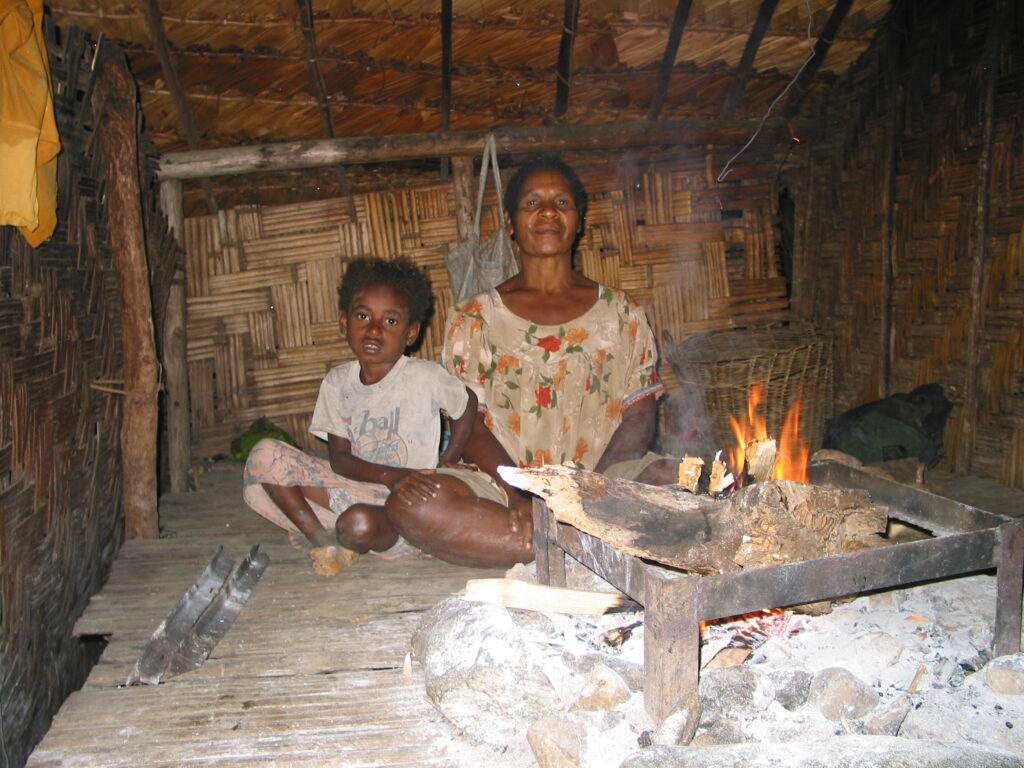
In view of the ‘Chronology of Mismanagement’ over the years since Canberra took control of your Trail I therefore feel compelled to write an apology to the faithful guides and carriers we have employed and the warm-hearted villagers that became such an important part of my life since I first stepped off at Owers Corner on my first trek in 1991.
‘Olgeta,
‘We met 32 years ago when you welcomed me into your villages on my first trek with Alex Rama in 1991. At the time you told me that few people trekked across the Trail – less than 100 each year – and you only made a few kina selling your vegetables at markets.
‘The following year Paul Keating put Kokoda on the map when he became the first Australian Prime Minister to visit the plateau since the war. He was moved by the experience and his words resonated throughout Australia.
‘The first 20 trekkers I led across the trail to honour the 50th anniversary of the Kokoda campaign in 1992 were also moved by the significance of the occasion; the traditional welcomes you provided; and the support of your guides and carriers.
‘Over the next couple of years more trekkers came, and we started to get to know each other better.
‘Sadly, the interest created by the media during Keating’s historic visit – and the expectations they created – evaporated soon after he left.
‘Our next opportunity to showcase the Trail came with the Sydney Olympic Games in 2000.
‘You will recall that we proposed the Olympic Torch be run across the trail on its way from Athens in Greece to Sydney. We knew it would take you less than 24 hours to get it across with the event being beamed to millions around the world.
‘Unfortunately, it was not to be – you were conned by the Sydney Olympic organizers who only allowed you to run it from Owers Corner to Port Moresby.
‘Governor Siembo felt so aggrieved he closed the Trail with a demand for compensation on your behalf. The Australian Government didn’t seem to care much as Kokoda was not on their radar at the time. However, the closure had a negative impact on your village economies as you had no income for many months.
‘I made a visit to Port Moresby to meet with Governor Siembo in Parliament House at Waigani to discuss the issue.
‘I was unable to meet the demands he made on your behalf however I suggested he could impose a fee on trekkers which could be held by a management body similar to how our we manage our National Parks in Australia. A fee would ensure your village communities received shared benefits from trekkers.
‘He agreed and the trail was reopened.
‘After we rediscovered the original battlesite of Isurava Prime Minister John Howard commissioned a memorial to commemorate the 60th anniversary of the campaign in 2002. This led to a continuing increase in the number of trekkers.
‘We then set about establishing a management body for the trail. You will recall that neither of our governments were much interested in supporting it at the time although Sir Peter Barter, your Minister for Provincial and Local Level Government Affairs, did approve a Special Purpose Authority and a former kiap, Mr Warren Bartlett, was appointed to manage it with a part-time assistant.
‘Unfortunately, neither Government would provide any financial support at the time so our company, Adventure Kokoda, advanced K25,000 to Mr Bartlett to allow him to operate for the first few months until trek fees started to flow – we did this because we believed in the potential of the Kokoda Trail to be a world class pilgrimage destination – we have never wavered from this belief since then.
‘We copped a bit of flack for this at the time as other trek operators did not want to have to pay a fee but eventually, they were shamed into falling into line.
‘Trekker numbers continued to increase under Warren Bartlett’s management of the new Kokoda Track (Special Purpose) Authority – which became known as the KTA – and benefits were returned to your villages as agreed.
‘The discovery of a large gold and copper deposit on the southern slopes of the Trail emerged as a major threat to trekking when bulldozers appeared in the Ofi Creek area. Government intervention stopped the mine however it was soon to be replaced by another more insidious threat – Australian Government bureaucracy!
‘The sudden rush of environmental officials from Canberra was reminiscent of author Keith Wileys’ observation in his book, ‘Assignment in New Guinea’ in 1965‘:
‘In recent years the academics have discovered New Guinea. Grave, plump, portentous, they swarm north in their hundreds each winter, generally finishing somewhere near Goroka in the Eastern Highlands where at times they become so numerous that every bush and stone seems to conceal a lurking bureaucrat or anthropologist. After a few weeks or a few months they return home to prepare brisk solutions for all the problems which beset the land. Too often they see New Guinea coldly as an exercise in nation-building to be carried out as quickly as possible, with one eye on the taxpayer at home and the other on some ranting demagogue in the United Nations.
‘At times the maligned colonialists, who walked ever the country and fought for it, seem to come nearer the heart of the matter. Stripped of slogans and self-interest, New Guinea emerges not as a ‘problem’; to be ‘solved’, or assessed , but simply as a land, wild and beautiful, worthy to be loved for its own sake; with a people, backward, kindly, and in need of help’ .
‘A similar analogy could be drawn today between government bureaucrats on secure incomes and trek operators who accept risk to create economic opportunities.
‘Since Australian officials, flush with Government money, arrived to ‘help’ you in 2009 trekker number have fallen by 46% – the management system they put in place has failed you – and the value of our shared wartime heritage has been relegated.
‘This has resulted in a collective loss of K49 million in foregone wages, campsite fees and village purchases since Australia assumed responsibility for your Trail 1n 2009.
‘So, after 100 treks over 32 years, I feel I need to make the following apologies to you in my capacity as the son of a digger who fought in New Guinea; as a Vietnam veteran; as a former Member of Parliament and as a pioneer of the Kokoda trekking industry:
- ‘Mi sori that we refuse to acknowledge your sovereign right to name your own geographic features and refuse to respect the name of the Battle Honour awarded to your Papuan Infantry Battalion, which is ‘Kokoda Trail’.
- ‘Mi sori we have failed to engage an accredited Military Heritage Architect to develop a Military Heritage Master Plan to commemorate our shared wartime heritage across the trail – because our shared wartime heritage is the primary motivation for the 65,000 Australians who have trekked it since we first met.
- ‘Mi Sori we have not been able to restore any of the significant heritage battlesites across the Trail to enhance the value of the pilgrimage for your paying customers who choose to trek across it.
- ‘Mi sori we failed to achieve any of the 5 key strategies or the 33 supporting objectives in your taxpayer-funded ‘Kokoda Trail Master Plan 2012-2015’.
- ‘Mi sori the million-dollar Village Livelihood Project, developed in Canberra, without any consultation with you, failed to produce any fruit, vegetables or income earning opportunities for you.
- ‘Mi Sori we have not conducted a single workshop in your villages to discuss your needs at the local level since we assumed responsibility for the Trail 13 years ago – it would have been a good way to get to know you better.
- ‘Mi Sori we have not been able to assist you in building a single hygienic toilet anywhere across the trail to meet the needs of your paying customers i.e. trekkers.
- ‘Mi sori we have failed to assist you to develop a system that allows trek operators to book campsites in advance.
- ‘Mi sori we haven’t developed a Trek Itinerary Management System to advise you how many trekkers will be arriving at your village, and when, so you can prepare food and souvenirs to sell.
- ‘Mi sori we have not taught you how to earn additional income from trekkers by providing local services to meet their needs.
- ‘Mi sori we have failed to provide any funds to assist you in developing campsites that meet the needs of your paying customers.
- ‘Mi sori we continue to import Queensland Park Rangers and pay them fat salaries and tax-free allowances instead of paying you to do the work you have been doing for generations i.e. keeping the Trail safe.
- ‘Mi sori we have not been able to help you develop a system to stop the exploitation of your local guides and carriers by unscrupulous trek operators.
- ‘Mi sori we have not been able to help you develop a system that provides for urgent medical evacuation from your villages to hospitals in Port Moresby.
- ‘Mi sori that we have failed to honour the commemoration of the 80th anniversary of the Kokoda campaign with any known plans to enhance the value of the pilgrimage for future trekkers.
‘Since the election of Prime Minister James Marape I have heard calls to ‘take back PNG’ from far and wide.
‘A good start for you, Olgeta, would be to show the Prime Minister how to do it by ‘taking back Kokoda’ – after all it’s your country – it’s your Trail – it’s your name – it’s a defining part or your history, and it’s a sacred link to our shared wartime heritage – all you have to do is click on this linki:
‘All you have to do to make it happen is:
- Rebadge the ‘Kokoda Initiative’ as the ‘Owen Stanley Ranges Initiative’ to reflect its aid-funded Climate Change and Evironment responsibilities;
- Wind-up the current Kokoda Track (Special Purpose) Authority;
- Transfer responsibility for the development of policy for wartime pilgrimage tourism to the Minister for Tourism, Arts and Culture;
- Appoint an Administrator responsible to the Prime Minister’s office for a 5-year period;
- Appoint former Deputy Chairman of TPA, Mr Andy Abel, to conduct a review of the management of pilgrimage tourism across the Kokoda Trail;
- Use the provisions of the Lands Act to acquire the gazetted area of the Kokoda Trail between Owers Corner and Kokoda as a national tourism asset;
- Include Kokoda Tourism as a State Owned Enterprise within the charter of Kumul Consolidated Holdings (KCH);
- Proclaim ‘Kokoda Day’ as a national day of commemoration;
- Seek support from the Australian Government to establish a ‘Joint Agreement for the commemoration of our shared wartime Heritage between Australia and PNG’; and
‘In the meantime, I thank you all sincerely for the most wonderful memories of my life and I look forward to continuing to work with you to ensure your legacy is never forgotten through the official proclamation of Kokoda Day as a national day of commemoration.
‘Lukim yu
Major Charlie Lynn OAM OL
Officer of Logohu‘
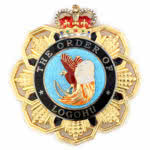
Relevant Links:
